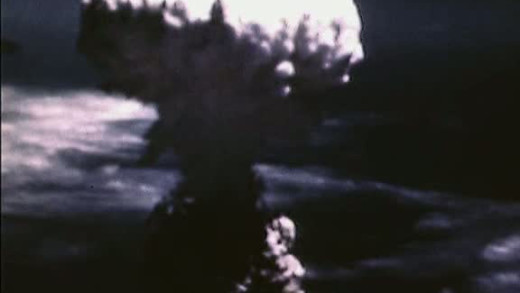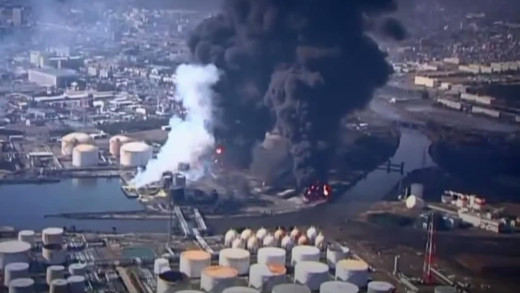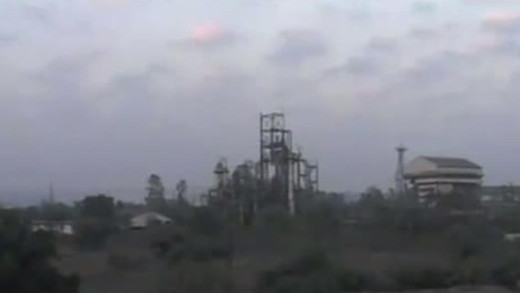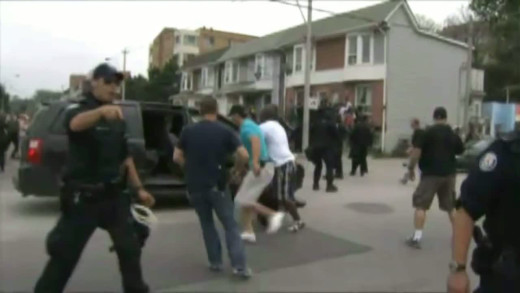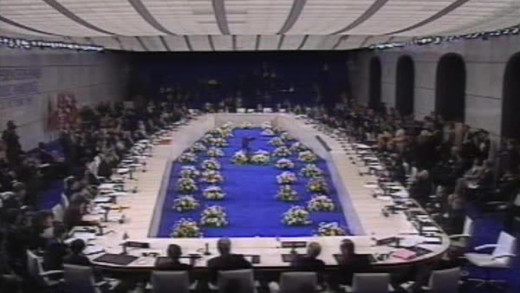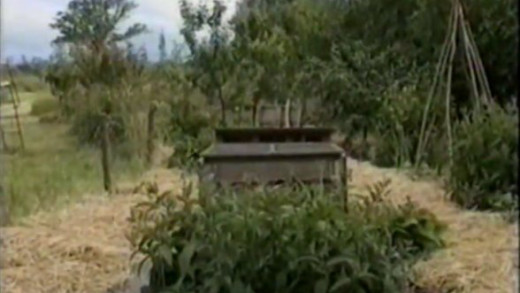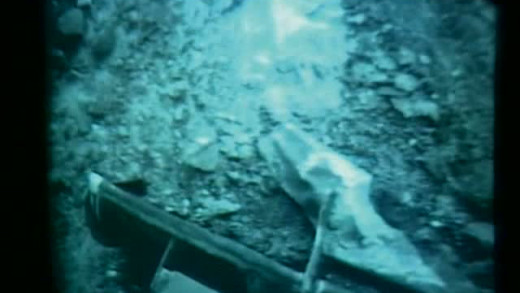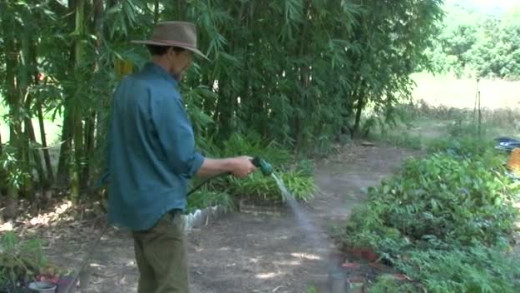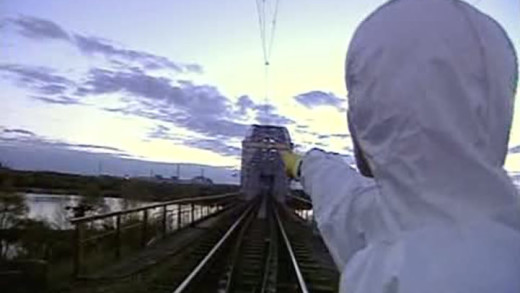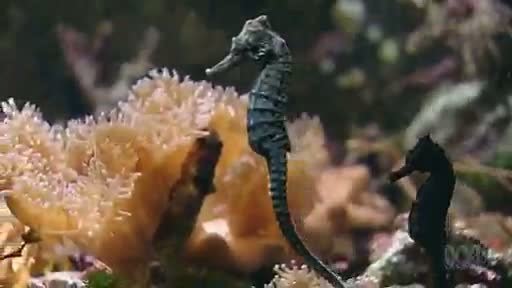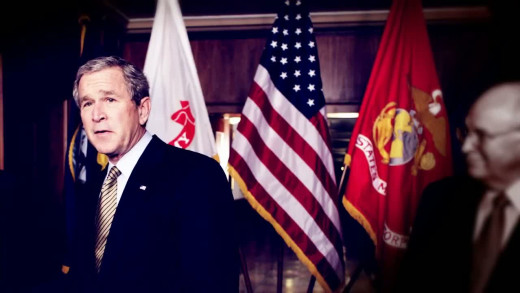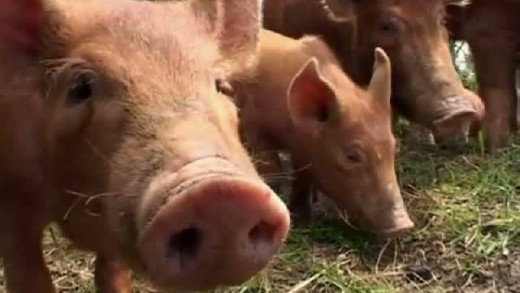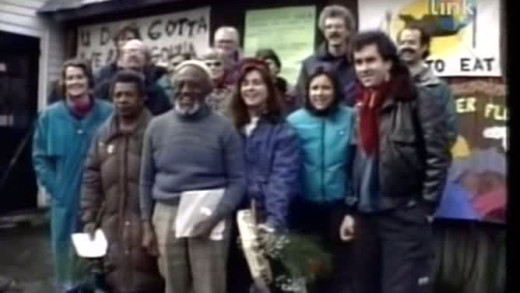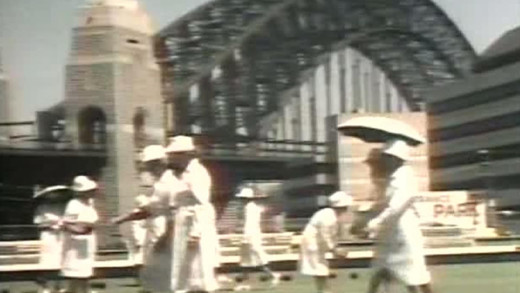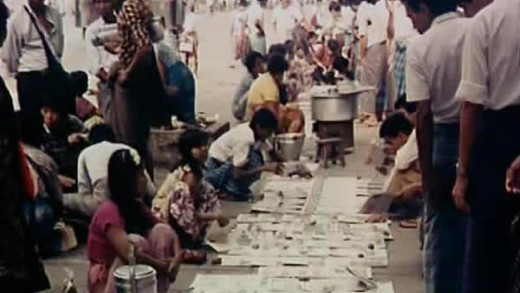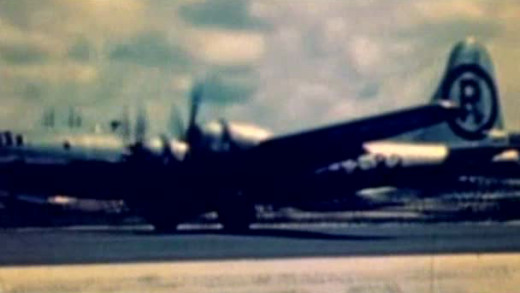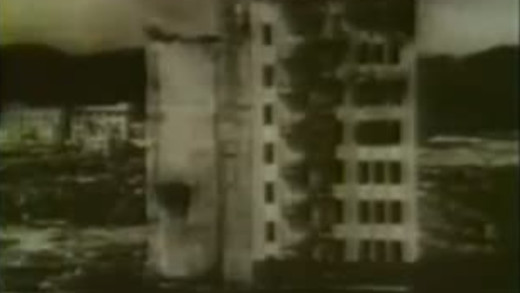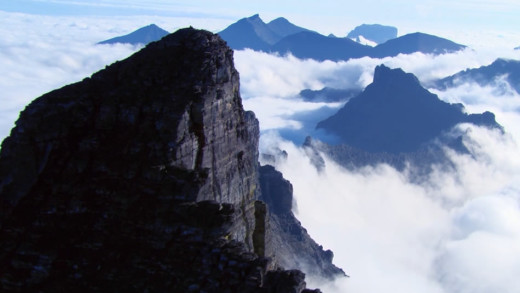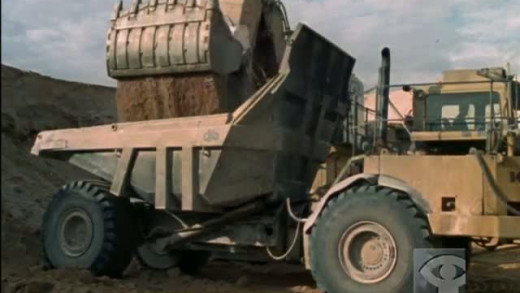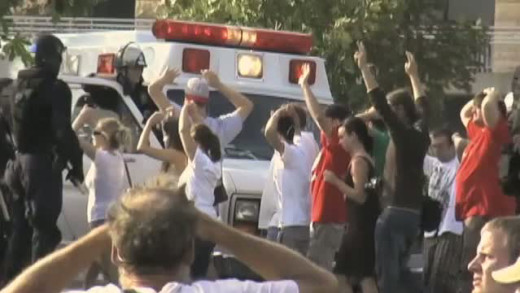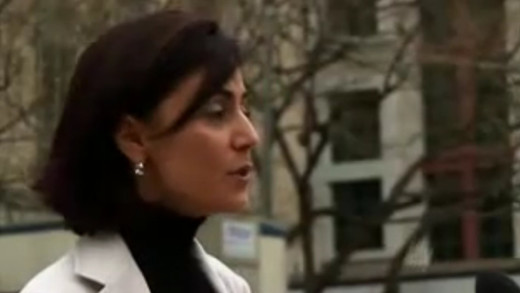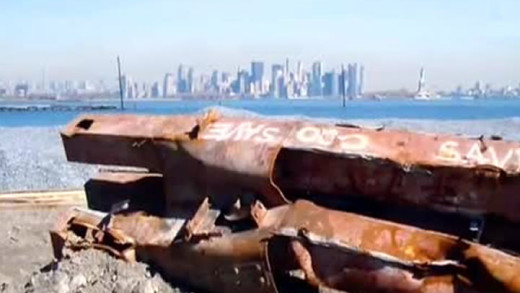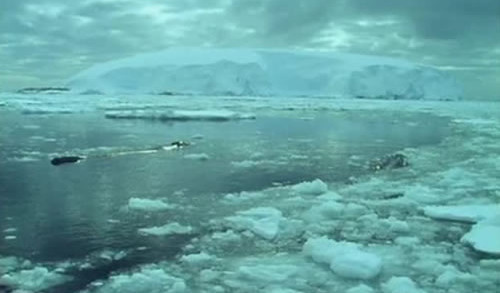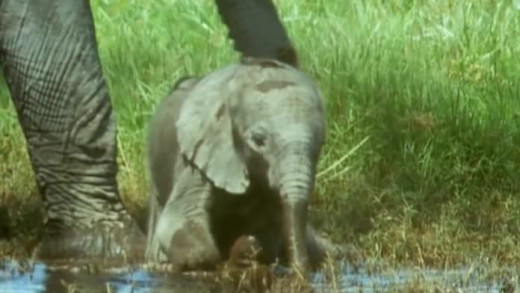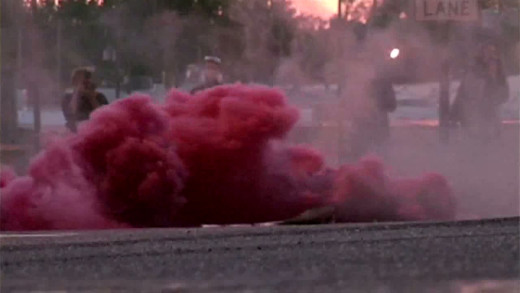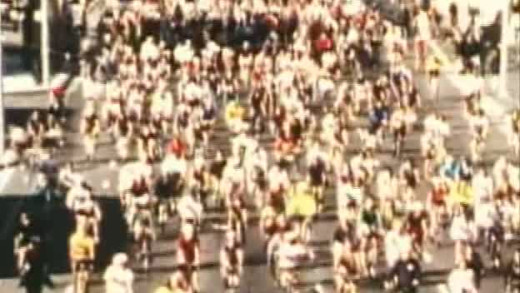On 8th August 1945, the United States dropped its second atomic bomb on Nagasaki, Japan, three days after the bombing of Hiroshima. The city was a veritable apocalyptic vision, devastated by this new type of weapon. Nagasaki -- The Horror Of Fat Man documents the memories of survivors, both Japanese civilians and Western Prisoners Of War, as they relate the morbid aftermath of the bombings, the United States occupation, and the segregation that still effects fallout victims to this day.
On 11th March 2011, a 9.0 magnitude earthquake unleashed a devastating tsunami destroying whole Japanese towns and villages. It also hit the Fukushima Daiichi nuclear power plant, damaging four reactors and leaking radiation. As the toxic fallout affects the health, safety and livelihood of millions, Japan faces its biggest-ever backlash towards nuclear power. Anti-nuclear activism in Japan has been on the rise along with calls for changes in energy policies generally. And from being the world's third-highest user of nuclear energy, the country now has only five of its 54 reactors working, but lengthened the time-span of its oldest reactors by 20 years. What's going on?
Ground Noise And Static is a video report on the protests that occurred in connection with the Democrat and Republican National Conventions in 2008. Corporate media would cover the platitudes and posturing of the politicians, but this film is interested in something else -- a story hidden in plain sight, told from the perspective of activists...
In October 2003, an extraordinary uprising challenged the United States empire and kicked out President Gonzalo Sánchez de Lozada -- a representative of the United States administration and transnational corporate interests. The people are calling for new forms of representation and organisation that question the portrayed notions of democracy and traditional political parties. In February 2003, a mutiny by the police against the imposition of income taxation on the poor to fulfil IMF demands, provoked the withdrawal of tax measures; throughout 2002, peasants revolted against the US-imposed 'coca war' -- the coca-eradication plan -- that would've destroyed the only possible source of survival for thousands of people. In 2001, the people of Cochabamba fought successfully against the a most outrageous form of privatisation -- of the water supply -- forcing the government to cancel the agreement with Bethell, a US-based company...
In June 2010, leaders from the twenty largest economies met in Toronto, Canada with representatives of corporate interests to discuss the policies that shape globalisation. With exclusion zones, overlapping layers of security fencing and an estimated 25,000 police and military personnel, the city was transformed into an armed grid. Over 1.3 billion dollars were spent on security measures -- more than all previous G8 or G20 meetings combined. Tales From The G20 shows some sides of the Summit, from unmarked vans with snatch squads of plainclothes police to the pre-emptive arrest of people now facing years in prison for organising demonstrations or simply being on the street...
John Pilger travels to Cambodia to investigate how the United Nations has allowed the Khmer Rouge regime to grow stronger. Why has Pol Pot's organisation grown stronger and more menacing since the arrival of the UN? Cambodia -- Return To Year Zero looks behind the façade of the so-called 'peace process' and asks: Has the unthinkable for Cambodia at last been made acceptable for the rest of the world?
Permaculture In Practice shows how the design of ecologically sustainable ways of living can be practised in four very different settings around the UK: A Hampshire back garden including fruit trees, vegetables, bees, chickens and ducks; in the city at Bradford close to a housing estate with 10,000 residents; a community co-op in Devon, which involves a café, allotments and local composting scheme; and a small farm in the Forest of Dean where local distribution schemes ensure a close link between grower and eater, including meat production, a vegetable box scheme and locally produced charcoal.
The Battle Of Chernobyl recounts the most significant and catastrophic nuclear explosion in history -- an incident that was kept secret for twenty years by the Soviet Union and United States alike. More than 200 people died or were seriously injured by radiation exposure immediately after the explosion and many generations later, the impacts are still felt in cancers, birth defects and toxic ecology, with millions of people still suffering from radiation related health problems such as leukaemia and thyroid cancer...
Introduction To Permaculture provides an overview of some practical examples of permaculture design, while following the interwoven themes of ethics, community, planning and ecology. The film follows Geoff Lawton who is a permaculture consultant, designer and teacher in Australia and throughout the world, demonstrating some of the possibilities of permaculture design and how it can transform the way we eat and live...
On April 26, 1986, the worst nuclear accident in history occurred when a reactor exploded at the Chernobyl nuclear power plant in Ukraine, releasing 90 times the radioactivity of the atomic bombs dropped on Hiroshima and Nagasaki. Sixteen years later, Chernobyl Heart travels to ground zero, following the devastating trail radiation leaves behind in hospitals, orphanages, mental asylums and evacuated villages. The film reveals those hardest hit by radiation, including thyroid cancer patients and children suffering from unfathomable congenital birth and heart defects, still decades later...
The Great Barrier Reef is one of the great natural wonders of the world. But now the area faces threats not only by changes to the climate, but by direct assaults from industry going to any lengths to extract Coal Seam Gas. This report travels to Queensland to show how at least six major port developments -- either being planned or currently underway -- are directly putting The Great Barrier Reef in jeopardy...
To this day, questions remain about what really happened in New York and Washington DC on 11th September 2001. All over the world and over a decade later, people still question the official story and the veracity of the explanations given for the events that took place that day. The Sensible Doubt meets with 6 Danes who talk about their doubt and scepticism of the official story espoused by the United States government and global mainstream media, and how they've come to their conclusions...
Pig Business investigates the rise of factory farming, a system which abuses animals, pollutes the environment, threatens human health through dangerous overuse of antibiotics and destroys rural communities. The film shows how this system which was developed in the United States and is now being used in eastern Europe from where the pork, often produced below legal animal welfare standards, is exported to other EU countries putting local farmers out of business...
An Act of Conscience documents the story of two couples Randy Kehler and Betsy Corner who refused to pay income tax throughout the 1980s in an act of defiance against military spending and war. The film captures the support community that formed in response to the seizure of their home by the IRS, and the conflict with the young couple with a newborn who bought the home at a government auction. Was this an effective protest?
In Australia
In Australia takes a candid look at the highs and lows of Australian society, circa 1976. The film ties together the workings of media manipulation in its early days, along with the removal of Prime Minister Gough Whitlam by Governor-General coup d'état—Kerr's Cur—to demonstrate the common apathetic side of popular culture in the 'lucky country.' The film also touches on the subtlety of remnant class structures remaining from English heritage by revealing the workings of the 'Occa'—a prudish stereotype of the common person portrayed and exploited by mainstream media, revealing views on immigration and racism in a country, ironically, colonised by immigrants.
Inside Burma -- The Land Of Fear exposes the history and brutality of one of the world's most repressive regimes. Nearly the size of Texas, with a population of more than 40 million, Burma has rich natural resources. Yet Burma is also a secret country. Isolated for the past 40 years, since a brutal military dictatorship seized power in Rangoon, Burma has been relegated to one of the world's poorest countries, with the assault on its people all but forgotten by the rest of the world. Award winning film-makers John Pilger and David Munro go undercover to expose how the former British colony is ruled by a harsh, bloody and uncompromising military regime...
60 years after the United States dropped nuclear weapons on Hiroshima and Nagasaki in Japan, the events are still espoused with denial and myth in histories taught by the west. White Light, Black Rain breaks this acquiescence and accounts the bombings from the point of view of the people who were there, speaking with survivors of the attacks and four American military men that were intimately involved in dropping the bombs. The film intimately details the human costs of warfare and stands as a powerful warning that with enough present-day nuclear weapons worldwide to equal 400,000 Hiroshimas, we cannot afford to forget what really happened with these events.
Agent Orange was the codename for one of the herbicides and defoliants used by the United States military as part of its chemical warfare program--Operation Ranch Hand--which ran for ten years during the Vietnam War from 1961 to 1971. During this time, the military sprayed nearly 80,000,000 litres of toxic chemical and defoliants mixed with jet fuel in Vietnam, eastern Laos and parts of Cambodia. The supposed goal being to destroy forested and rural land, depriving guerrillas of cover and to induce forced-draft-urbanisation, destroying the ability of peasants to support themselves, forcing them to flee to the cities dominated by US forces, depriving the guerrillas of their rural support base and food supply...
Planet Earth is a comprehensive series of eleven episodes that each feature a global overview of a different biome or habitat on Earth.
Uranium
Focusing specifically on mines in Canada, Uranium examines the hazards of uranium mining, the toxic and radioactive waste involved at every stage of the process, as well as the wholistic way that indigenous communities have been violated and destroyed by mining and refining practices throughout the country and the world...
Unwritten Future
Unwritten Future documents the events during the Republican National Convention in 2008 where excessive use of force and questionable tactics by police are on full show. Even peaceful radio host Amy Goodman is arrested. The film is dispersed with interviews with activists, asking them what they are fighting for, contrasted with police response and the aftermath.
In the wake of September 11, 2001, Sibel Edmonds is approached by the FBI. As an American of Iranian and Turkish origin, Edmonds' linguistic skill-set makes her a valuable asset to the Language Services Unit, where she spends months translating high-security clearance documents. One day shortly after reporting the possible infiltration of her unit by Turkish spies to her supervisors and their supervisors, Edmonds' world is turned upside-down. Instead of seeing her colleague become the target of an investigation, she is interrogated, then unceremoniously fired and warned not to pursue her claims any further as she would be watched and listened to. Kill The Messenger documents both Edmonds' personal struggle to expose the criminality uncovered while at the FBI, and also the September 11 tied 'secret' itself--the network of nuclear black-market, narcotics and illegal arms trafficking activities.
Improbable Collapse focuses on the events of September 11, 2001 from a scientific perspective--testing various hypotheses against gathered evidence such as traces of incendiary particles in dust found after the attacks; the presence of molten-metal being found in all 3 buildings (WTC 1, 2, and 7) and other physical evidence such as the collapse of all 3 buildings at free-fall speed that would suggest that they were destroyed using explosives in a controlled demolition--especially building 7 which was not hit by a plane and collapsed neatly in it's own footprint at 5:21pm. Using photographs, extensive video footage as well as thorough scientific analysis, the film comprehensively scrutinises official reports--showing the many flaws, inaccuracies and omissions, while presenting a more plausible hypothesis. All such findings are still consistently ignored by both government investigations and the mainstream media... Why?
Life In The Freezer is a study of the seasonal cycle of Antarctica, exploring how different species survive throughout the course of a year.
The Trials of Life is a comprehensive study of animal species that takes a broad overview of nature and ecology. The series documents the different aspects of the journey through life--from birth to adulthood and continuation of species through reproduction.
Resist -- The Aftermath Of The RNC8 follows activists Rob Czernik, Garrett Fitzgerald and Luce Guillen-Givins; attorney Robert Kolstad, volunteers/arrestees from the community, and others impacted by the actions against the Republican National Convention in 2008. Taking a look back over the last year, the video shares some helpful advice for activists organising under state repression...
Life In The Undergrowth specifically focuses on the life, evolution and habits of invertebrates from all over the world.
We Are Traffic
We Are Traffic chronicles the history and development of the "Critical Mass" bicycle movement -- one of the most dynamic social political movements of the apathetic 90s. In over 200 cities in 14 different countries, Critical Mass has now become a monthly ritual of reclaiming the streets by bicycle activists riding en masse...
